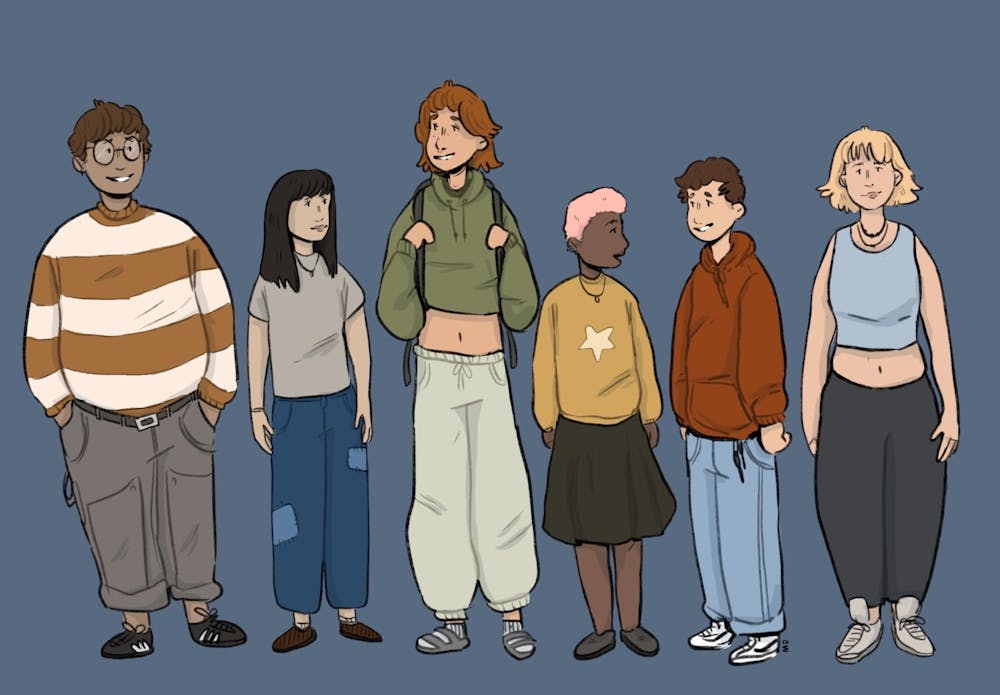Most eating disorders develop between the ages of 18 and 21, the time when a lot of high school students begin their journey in college, according to the National Eating Disorders Association. According to the National Library of Medicine, many young adults also suffer from body image issues; it is estimated that 20-40% of women and 10-30% of men struggle with this.
This year, a new club has started on campus at Western Washington University to address these very issues and break apart beliefs that weight loss is the only way to be healthy. The Health at Every Size Club has weekly group meetings surrounding the HAES principles.
These principles include weight inclusivity, health enhancement, eating for well-being, respectful care and life-enhancing movement.
The HAES Club was started by two Western students who were looking to build a community centered around these principles.
“I moved to Western the day after I was discharged from eating disorder treatment," said Audrey Campbell, a second-year student and lead officer of HAES Club. "I was really hoping that when I came here I could find a club or a support group for people in eating disorder recovery or just pro-Health at Every Size, but there wasn't anything.”
Because of this, Campbell decided to start their own club and made first-year student Caro Molamphy co-leader.
“A lot of people still see the world through a diet culture lens, so it's a huge breath of fresh air to be around people who view health the same as you do,” Campbell said. “It's a great place to literally just rant. We have some regulars that show up every meeting and then others that are in and out.”
HAES Club is a resource for students to find a sense of community when dealing with the many changes that come along with the transition from home to college.
“Periods of transition, in particular with college, are really vulnerable times for humans. There’s a difference in food structure, access and types of food. It's very common to experience body changes, like the freshman 15,” said Katherine Metzelaar, dietician and founder of Bravespace Nutrition in Seattle.
Eating disorders thrive in isolation, so a sense of community in the college environment is especially important, said Meredith Nisbet, who provides care centered around the HAES principles for the Eating Recovery Center.
For Michaela Morse, a first-year Western student, the sense of community kept them coming to meetings.
“It's been very fulfilling to be in that club, it’s almost like group therapy,” Morse said. “It gives me the confidence to go into the dining halls because I am a very picky eater to the point where it's disordered. They give me lots of support and tips.”
HAES Club’s meetings are centered around discussion and sharing, often revolving around a theme, providing a sense of validation for members who share.
“I don't know what I would do without it," Morse said. "It opens up your mind and rewrites the way that your brain thinks. I recommend it because there's no support for this kind of stuff around campus and this a very big resource for support.”
In addition to support groups, college students struggling with disordered eating and body image issues can seek out other solutions to help them.
“I always recommend that people diversify the media that they're consuming. Looking at content from people of different races, cultures, backgrounds and body sizes can help to break your brain,” Nisbet said.
Nisbet also said focusing on realistic ways to care for one's self takes off the pressure to have full-body acceptance.
“With disordered eating and eating disorders, there's no such thing as being sick enough and it applies to all genders, sexualities, abilities, races and ethnicities," Metzelaar said. "When in doubt, reach out. There's another way to create peace with food and your body, even if it feels impossible right now.”
Students who are seeking this kind of resource can attend meetings, which are posted on the HAES Club Instagram. They will be having meetings during the winter quarter, which are open to anyone.
Olivia Marty (she/her) is a campus life reporter for The Front. She is a sophomore majoring in public relations journalism. In her spare time, Olivia loves going thrifting, watching documentaries, and crafting. She can be reached at oliviamarty.thefront@gmail.com.






